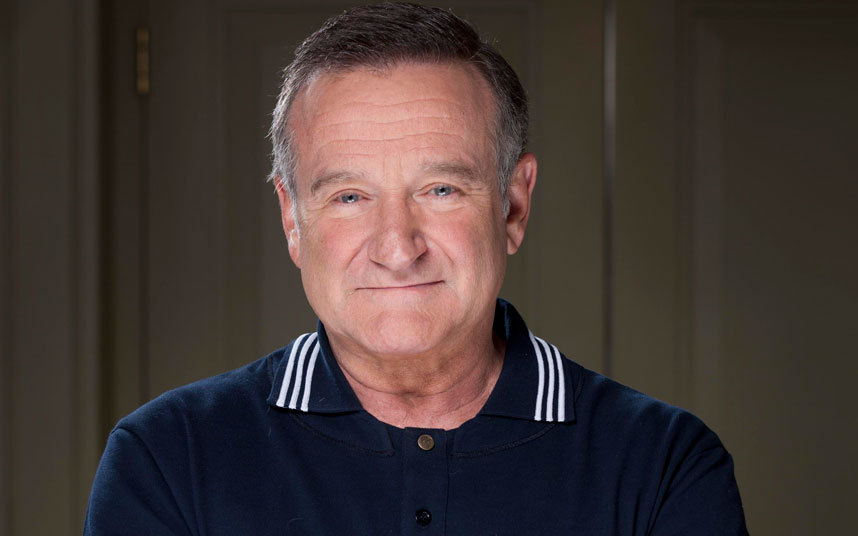A child is born, and in the whirlwind of his parent’s lives he feels isolated and alone. The only time he feels connected to his mother is when he makes her laugh, so he develops his sense of humour and comes to rely on her laughter as his strongest bonding experience.
His body grows along with his comic genius, and he is eventually discovered. The fame and fortune that soon follow help to fill the hole in his heart. But in time even the laughter of millions is not enough to fill the void, and the man turns to alcohol for that warm fuzzy feeling that is akin to the applause he gets on stage, akin to the validation he felt when his mother laughed at his jokes. Cocaine soon follows as the perfect drug to match the manic edge of his humour.
At a certain point he realizes there is a problem, and seeks the help of professionals. He kicks his alcohol and cocaine habit in rehab, and goes back to his original addiction: a constant diet of laughter and praise from his adoring fans.
Years later the addictions return. Robin realizes the emptiness inside of him will never go away, that he will always be dancing with the demon that is the underpinning of his genius. Despair sets in, and the hopelessness of his situation weighs heavily upon him. He sees no way out, save ending his life.
You might think that I made this story up, to which I say that it is no more fictional than the story our culture has made up about addiction and depression, its causes and its cures. Through my work, too often I see the focus put on correcting the chemical imbalance instead of addressing what has caused the imbalance in the first place. I see the focus being on getting the person off of drugs, but not on what drove them to do them in the first place.
Behind every addict is someone who is soothing the pain of some traumatic life event, some unbearable childhood loss. The death of Robin Williams is a high-profile example of how poorly we understand addiction and depression, how we fail to address the traumatic basis of these issues, and how unsuccessful we are in treating them.
Recommended Reading:
- In the Realm of Hungry Ghosts by Dr Gabor Mate
- The Power of Now by Eckhart Tolle
- Recommended Viewing:
- Good Will Hunting
- Shine








Fame, fortune, adulation, brilliance…you would think just one of these alone would insulate a person from despair, but Robin Williams had all of them, and in the end, they couldn’t shield him from the dark shadow that finally obscured his light. My hope is that his suicide will encourage people to seek answers to the question you pose in your blog. Why are we not treating the cause of the depression instead of just pushing the pause button with medications? — Janice Holly Booth, author of “A Voice out of Nowhere: Inside the mind of a mass murderer”
Janice, you touch on precisely what bothers us so much about this particular tragedy: how someone who has everything could be so despairing as to end his life. Why someone with all of the resources at his fingertips (most expensive psychologists, best rehab centers, not to mention the adulation of millions) still could not find his way out of the darkness called depression. For me, the fact that the current system could not work for Robin says everything we need to know about that system.
I agree that substances are almost always the symptom of trauma or unresolved pain. The issue is that the substances become a problem, often very “front and center”, and the cessation of substance abuse can take a lot if therapeutic energy, and then, once clean and sober, the pain or trauma is raw and felt (sometimes for the first time in years). I have had clients tell me that they actually functioned much better on the substances…….so I vote for concurrent tx – substance abuse reduction and eventual cessation, while doing the trauma work. I also advocate for soothing substitution – how can we realistically expect people who have gone to such lengths (addictions) to not feel the full brunt of their pain, to suddenly do so???? Seems cruel to me, so I look for soothing subs – music, dance, anything rhythmic really, fear boxes, hope chests, and journals and meditation for those who are ready to address their tremendous wounding in direct thought or words. We have plenty of treatment centers to help people off substances, but scant safe sanctuary for the real work of healing the pain that ignited the flame of addiction in the first place.
I do wish, if course, that Robin Williams had someone to hold his hope for him when it must have seemed hopeless to him, and someone who knew that his pain could be ended without ending his actual life. His endurance was amazing, really, but I feel for his family and for him – an end that is ultimately seen as selfish, a failure, etc etc etc etc and only adds to those who truly loved him as their pain, and so the cycle, continues.
As always, I thank you for the gift of deep conversation, and will always be thankful for the learning you bring forward!
Elaine
Margo, this piece is so well written and so well said. When I heard of Robin Williams’s death I felt sad of course, but also understanding. Being highly sensitive and most days struggling with my own demons, I know how overwhelming and discouraging that can be. I sometimes feel powerless, if only momentarily, to change even my attitude towards my inner conflicts. The courage to keep going is something to be grateful for and humbled by.